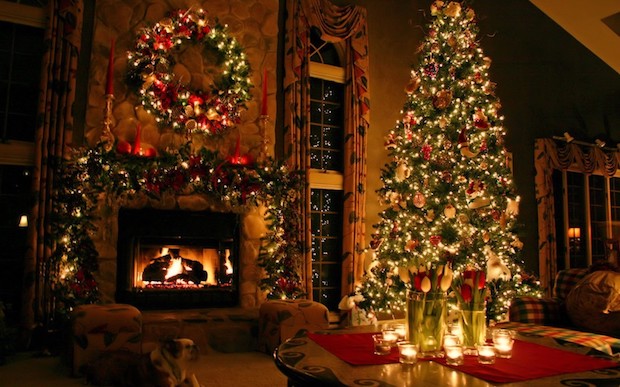My Beautiful Fir Tree – O Christmas Tree In French
L’esprit des fêtes (the holiday spirit) is stronger than ever with Noël just around the corner. This festive time of the year is the perfect moment to add un chant de Noël français (a French Christmas carol) to your holiday playlist!
Les chants de Noël are a big part of the ambiance of the holiday season.
Les chansons (the songs) complete the scene of les chausettes de Noël (Christmas stockings) resting above la cheminée (the fireplace) with a pile of cadeaux (gifts, presents) waiting under the wonderful sapin de Noël (Christmas tree).
Le sapin de Noël is lucky enough to have its own chant de Noël:
Mon beau sapin - O Christmas Tree (literally: My Beautiful Fir Tree)

La chanson, like le calendrier d’Avent, is a holiday tradition that came from Germany. Mon beau sapin was originally called O Tannenbaum en allemand (in German) and translates to O Fir Tree. Ses origines (its origins) go back as far as 1550, but it’s the more modern version written by Ernst Anshütz in 1824 that became known all over the world.
Interestingly, la chanson did not specifically refer to Noël at first, but slowly became associated with the holiday with the rise in popularity of les sapins de Noël. By the 20th century it was a standard chant de Noël like Au Royaume du Bonhomme Hiver and was translated into many languages, including anglais et français (English and French).
In between opening presents and walks around les marchés de Noël, take a moment to learn ce chant de Noël français!
Voici Mon beau sapin avec les paroles et une traduction :
Mon beau sapin, roi des forêts
Que j’aime ta verdure
Quand par l’hiver, bois et guérets
Sont dépouillés de leurs attraits
Mon beau sapin, roi des forêts
Tu gardes ta parure
My beautiful fir tree, king of the forests
How I love your greenness
When in winter, woods and fallow lands
Are stripped of their charm
My beautiful fir tree, king of the forests
You keep your decorations
Toi que Noël planta chez nous
Au saint Anniversaire
Joli sapin, comme ils sont doux,
Et tes bonbons, et tes joujoux
Toi que Noël planta chez nous
Tu répands la lumière.
You who put Christmas in our home
The holy birthday
Lovely pine, how pleasant they are
And your sweets, and your toys
You who put Christmas in our home
You spread the light.
Mon beau sapin, tes verts sommets
Et leur fidèle ombrage
De la foi qui ne ment jamais
De la constance et de la paix.
Mon beau sapin tes verts sommets
M’offrent la douce image.
And their faithful shade
Faith that never lies
Loyalty and peace
My beautiful fir tree, your green peaks
Give me that pleasant image.
Wishing You a Merry Christmas.

Blog submitted by: David at The French Property Network - Cle France.
This blog was originally posted on The French Language Blog pages.